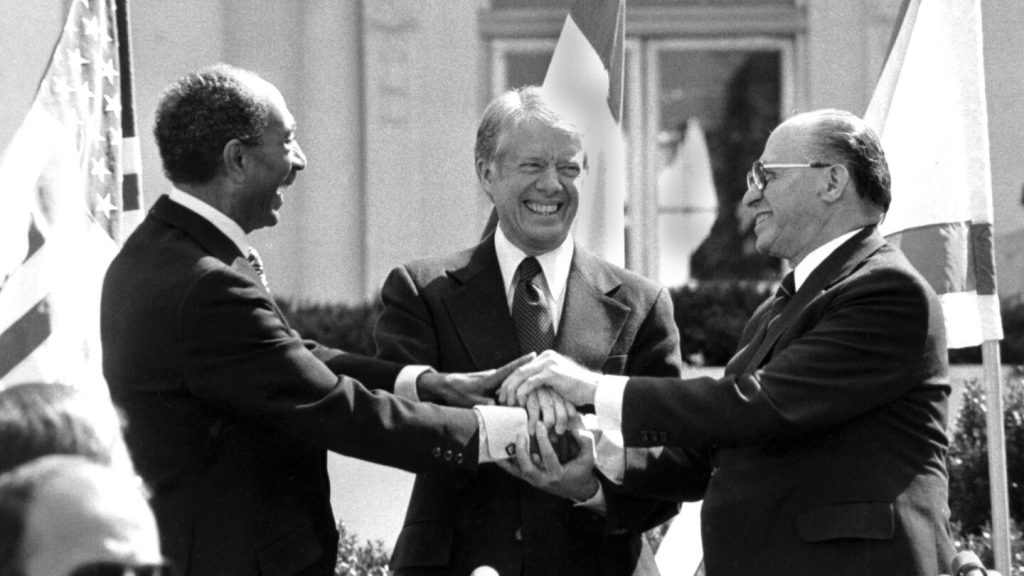Former President Jimmy Carter’s crowning achievement was his success in negotiating a Mideast Peace agreement between Egypt and Israel at Camp David. The agreement, announced in September 1978, was a significant step towards peace in the Middle East. Carter, along with Egyptian President Anwar Sadat and Israeli Prime Minister Menachem Begin, signed documents committing to a peace treaty within three months, marking the first formal recognition of Israel by an Arab neighbor since its creation in 1948.
The agreement included Israel’s withdrawal from the West Bank and the establishment of diplomatic relations between Israel and Egypt. Carter emphasized the importance of allowing Palestinian Arabs living in the West Bank and Gaza to participate in determining their future. The framework for peace also laid the groundwork for Israel to negotiate peace treaties with other Arab neighbors, including Syria, Jordan, and Lebanon. Overall, the agreement was a significant step towards peace in the region.
The successful negotiation at Camp David was the result of intense deliberations and diplomacy. Carter, Sadat, and Begin worked tirelessly over a 13-day period to overcome differences and reach a consensus. The agreement on the Sinai brought Egypt and Israel closer to a final settlement, outlining plans for Israeli troop withdrawal and the restoration of Egyptian sovereignty. However, unresolved issues remained, particularly regarding the fate of Israeli settlements in captured territory and the autonomy of the West Bank and Gaza.
The atmosphere during the negotiations shifted from uncertainty to cautious optimism as the deadline approached. Carter’s shuttle diplomacy between Sadat and Begin played a crucial role in bridging gaps and moving towards a resolution. While challenges remained, the commitment of all three leaders to achieving peace was evident. The joint appearance at the White House and the signing of the framework for peace symbolized a significant victory for Egypt, Israel, and the efforts towards peace in the region.
Despite the progress made at Camp David, challenges and uncertainties still loomed. Questions surrounding the status of Jerusalem and the final agreement on the West Bank and Gaza remained unresolved. Carter’s commitment to continue working towards peace was evident, as he emphasized the importance of foresight and wisdom in guiding future negotiations. The historic moment at Camp David marked a significant milestone in diplomatic efforts towards peace in the Middle East.
As Carter, Sadat, and Begin departed Camp David, they were greeted with optimism and recognition for their efforts. The agreement reached at the summit laid the foundation for further negotiations and cooperation between Egypt and Israel. The events at Camp David underscored the importance of diplomacy, perseverance, and leadership in navigating complex international disputes. The legacy of the Mideast Peace agreement negotiated by Carter continues to be remembered as a pivotal moment in the history of the region.














